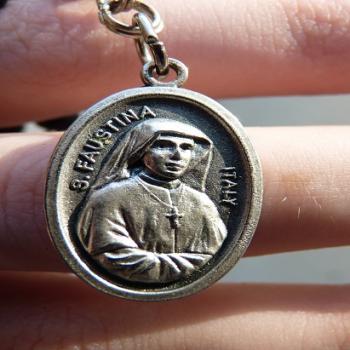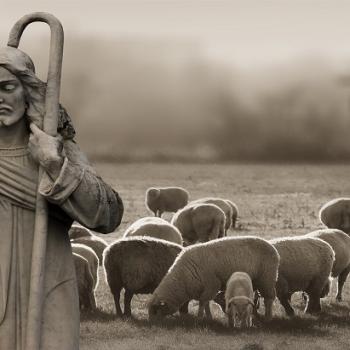With National Friendship Day coming up this Sunday (August 7th), we have a fun reason to look into Biblical takes on friendships! When I think of what the Bible says about friendships, my thoughts go to David and Jonathan, among others. Of course, the Bible also has some candid things to say about toxic friends who turn out to be sources of poison in our lives.
Well, let’s take a look at them all!
Thank you, sasint/Pixabay, for this beautiful friendship image!

Famous Biblical Friendships
Jonathan showed David some truly beautiful loyalty during their time together. In fact, one could argue that Jonathan willfully deconstructed the phrase “blood is thicker than water”.
In 1 Samuel, Jonathan has to choose between his violent, jealous (and potentially murderous) father, King Saul and David. David posed an innocent threat to Jonathan’s succession to the throne, which Saul tried to use as leverage against his son.
“Saul’s anger flared up at Jonathan and he said to him, ‘You son of a perverse and rebellious woman! Don’t I know that you have sided with the son of Jesse to your own shame and to the shame of the mother who bore you?'” (1 Samuel 20:30)
It didn’t work.
Jonathan called his father out for his malicious intentions against his best friend, which Saul used as an excuse to try killing his own son.
Afterward, Jonathan confirmed to David that Saul fully intended to murder him, choosing to protect his “rival” over his tie to the throne.
The Bible notes that during their last meeting, Jonathan and David kissed and wept with each other. What a profound description of vulnerability between men. I can see this particular Bible friendship inspiring similar bonds, like the one between Aragorn and Boromir in The Fellowship of the Ring:
“I would’ve followed you, my brother…my captain…my king.”
–Boromir to Aragorn, “The Fellowship of the Ring”
Ruth and Naomi
Ah, the sweet story of the mother-in-law and daughter-in-law who stuck by each other’s side after losing their loved ones. What Ruth says to Naomi in response to her plea for her daughter-in-law to return safely to her own country is so powerful:
“But Ruth replied, ‘Don’t urge me to leave you or to turn back from you. Where you go I will go, and where you stay I will stay. Your people will be my people and your God my God. Where you die I will die, and there I will be buried. May the Lord deal with me, be it ever so severely, if even death separates you and me.’ When Naomi realized that Ruth was determined to go with her, she stopped urging her.” (Ruth 1 16-18)
Another layer to their tenderhearted bond is that Ruth hailed from Moab, one of Israel’s enemies. Oh, and Ruth is the great-grandmother of King David!
Which also makes her Jesus’…22nd great-grandmother? I’m just throwing out an estimate, of course. But either way, Ruth’s love for Naomi, which led to her meeting the kind man Boaz (her future 2nd husband), made her part of Jesus’ lineage!
I’m so happy that I read deeper into the Book of Ruth. It turns out that Boaz was a distant relative of Naomi’s deceased husband. Naomi was overjoyed when she found out that Ruth was working under Boaz and his kindly protection.
Naomi played a sort of matchmaker for Ruth and Boaz, as well. She pulled some honorable strings to ensure that the two would have private time together, guaranteeing their marriage.
On top of this, the last parts of the Book of Ruth mention that Naomi gladly nursed Ruth’s son, Obed. Obed was the grandfather of King David. It’s so fascinating to see this lineage play out!
Examples of Toxic “Friends” in the Bible
While David and Jonathan show us a wholesome example of how healthy best friends treat each other, Jonathan’s father, King Saul, provides an example of “friends” to avoid at all costs.
The Book of 1 Samuel relates multiple scenes where Saul tries to hunt down and kill David out of jealousy and paranoia. What makes Saul so disgusting is that he seemingly repented of his malice to David, only to break his promise of peace and go after him later.
Even when David gladly spared Saul’s life in 1 Samuel 24 and 26, Saul still tried to kill him when he could. Saul’s heart was bent on mercilessness, and he made it abundantly clear that he was no friend to David. Not all the kindness in David’s heart was enough to make Saul do better.
Doeg, the Instigator
In fact, 1 Samuel has another example of toxic people to avoid, like the plague: Doeg the Edomite.
Doeg was present in the priest city of Nob when David was seeking refuge there, away from King Saul. David and the head priest, Ahimelech, didn’t realize that Doeg saw them speaking together. Doeg went to Saul and told the king that Ahimelech had consulted God for David’s sake and had also given him provisions.
Saul ordered all of Nob’s priests to come to him, and he accused them of conspiring against him. When Ahimelech (rightfully) claimed innocence against Saul’s paranoid accusations, Saul ordered their deaths.
Doeg was the only man present who was willing to harm one of God’s priests. Not only did he slaughter 85 priests of Nob, but he also slaughtered the entire city, down to the infants (1 Samuel 22:19).
Out of his paranoia and desperation to remain king (despite David never intending to seize the throne), Saul authorized an evil man to commit genocide of innocents. All this because Doeg told Saul what the king wanted to hear, playing into his distrust of even God’s priests.
Jonadab, the Malefic Cousin
In 2 Samuel, we read about the horrific crime Amnon, a son of King David, committed against Tamar, his half-sister. Amnon r*ped Tamar after she refused to lay with him. Tamar believed that Amnon was sick, but neither she nor their father realized that this was a disgusting ruse meant to lure her to Amnon’s side.
It was Jonadab, Amnon’s cousin through David’s brother Shimeah, who told Amnon to trick Tamar.
Jonadab was well aware of Amnon’s incestuous lust towards Tamar. Instead of reprimanding him or alerting King David of Amnon’s sick mind, Jonadab encouraged Amnon to pretend he was ill. This way, he would get King David to send Tamar to his bedside where Amnon would have his chance to hurt her.
2 Samuel doesn’t say if Jonadab was held accountable for his part in Tamar’s pain. In fact, it’s possible that Absalom, Tamar’s full-blooded brother, wasn’t aware that their cousin was the one who created the “Help me, I’m sick” plan. Otherwise, Absalom would’ve killed Jonadab after killing Amnon in revenge.
Amnon should’ve held himself accountable for his depravity and kept himself away from Tamar and Jonadab’s encouragement to commit evil. Jonadab may have escaped Absalom’s vengeance, but sooner or later, he would’ve been caught. After all, nothing done behind closed doors stays secret forever (Luke 8:17).
Bible Verses About Bad Friends
Here are some Bible verses that warn about choosing the wrong company to hang out with:
“Do not be deceived: ‘Bad company ruins good morals.'” (1 Corinthians 15:33)
“One who is righteous is a guide to his neighbor, but the way of the wicked leads them astray.” (Proverbs 12:26)
“Many will say they are loyal friends, but who can find one who is truly reliable?” (Proverbs 20:6)
“Do not make friends with a hot-tempered person,
do not associate with one easily angered,
or you may learn their ways
and get yourself ensnared.” (Proverbs 22:24-25)
The Importance of Friends Who Hold Us Accountable
Here’s one that threw me for a loop:
“Wounds from a sincere friend are better than many kisses from an enemy.” (Proverbs 27:6)
An excellent example of this Proverb in action is King David’s prophet Nathan, who gives him a blistering rebuke for his sins in 2 Samuel 12. After David got his loyal soldier Uriah killed after lusting after his wife Bathsheba, Nathan refused to sugarcoat God’s message of justice.
“Then Nathan said to David, ‘You are the man! This is what the Lord, the God of Israel, says:
‘I anointed you king over Israel, and I delivered you from the hand of Saul. I gave your master’s house to you, and your master’s wives into your arms. I gave you all Israel and Judah. And if all this had been too little, I would have given you even more.
Why did you despise the word of the Lord by doing what is evil in his eyes? You struck down Uriah the Hittite with the sword and took his wife to be your own. You killed him with the sword of the Ammonites.
Now, therefore, the sword will never depart from your house, because you despised me and took the wife of Uriah the Hittite to be your own.'” (2 Samuel 12: 7-10)
Nathan stands in stark contrast to Bible characters like Jonadab, who gladly encouraged their friends to act on their evil desires. While it can be unpleasant, hearing our true friends hold us accountable when we do wrong, we need them in our lives to keep us on the right path.
We all should seek Neville Longbottoms in our lives, somebody who isn’t afraid to stand up to us when necessary:
Featured Image by sasint/Pixabay
Hello, and thank you for supporting my work here on Patheos! If you’d like to support me further, please feel free to “Buy Me A Coffee” here:












